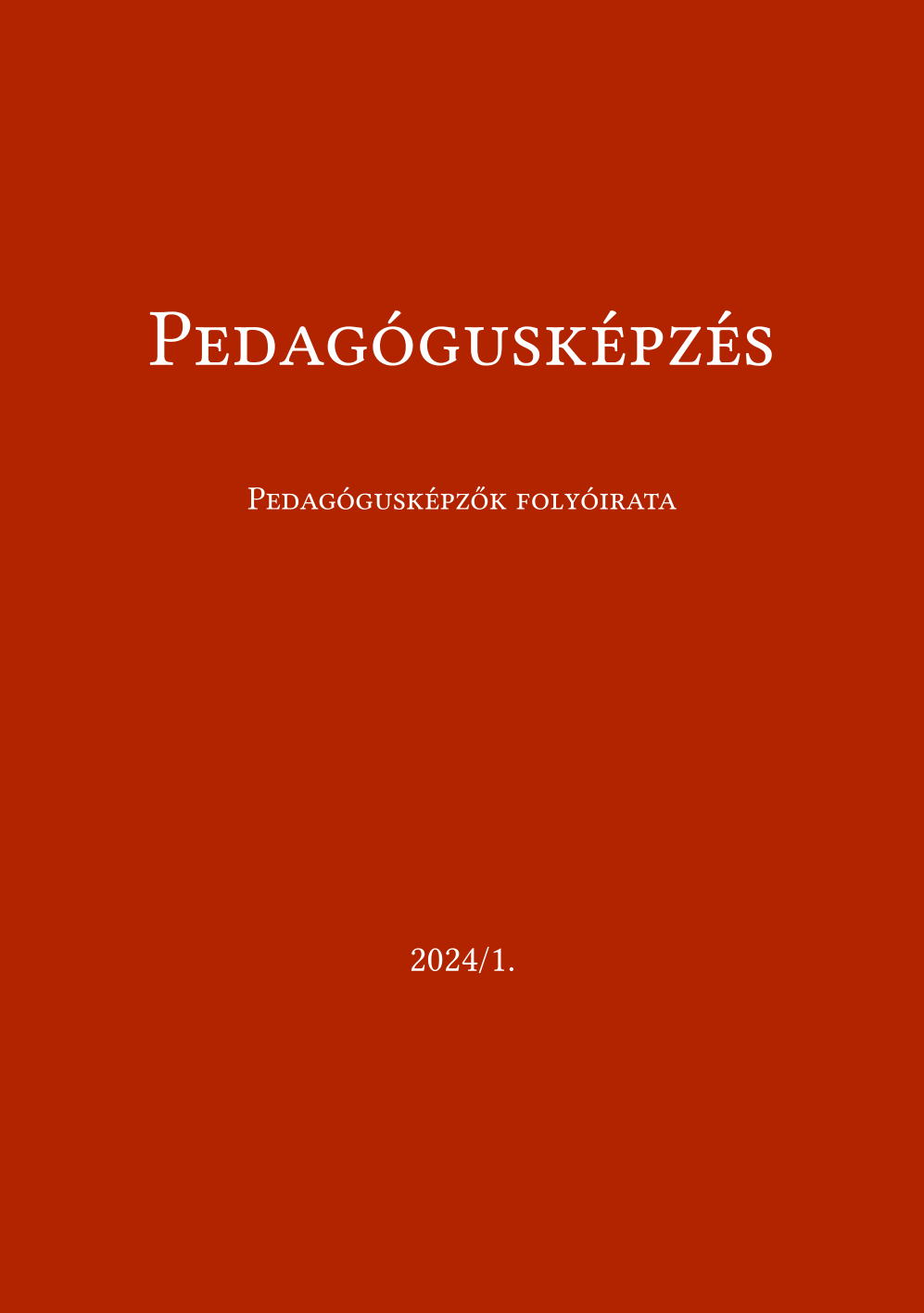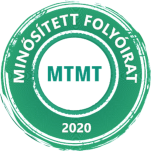A mesterséges intelligencia jelentősége a pedagógusképzésben
DOI:
https://doi.org/10.37205/TEL-hun.2024.1.09Kulcsszavak:
MI-műveltség, MI-pedagógia, MI-módszertanAbsztrakt
A mesterséges intelligencia nem csupán technológiai fejlődést, hanem pedagógiai kihívásokat is jelent. Vajon ez milyen hatással van az oktatók és tanulók attitűdjére, felkészültségére és technológiai készségeire? Elengedhetetlen-e a pedagógusok és a pedagógushallgatók MI-kompetenciájának fejlesztése a technológiai fejlődéshez való alkalmazkodás érdekében?
Az írás célja, hogy bemutassa, mely oktatástervezési és didaktikai elemek felhasználásával lehet a tanárok és tanárjelöltek fejlesztését megvalósítani.
Hivatkozások
Burgsteiner, H., Kandlhofer, M. & Steinbauer, G. (2016). IRobot: Teaching the Basics of Artifi-cial Intelligence in High Schools. Proceedings of the AAAI Conference on Artificial Intelli-gence, 30(1). https://doi.org/10.1609/aaai.v30i1.9864
Chounta, I.-A., Bardone, E., Raudsep, A. & Pedaste, M. (2022). Exploring teachers' perceptions of Artificial Intelligence as a tool to support their practice in Estonian K-12 education. In-ternational Journal of Artificial Intelligence in Education, 32(3), 725–755. https://doi.org/10.1007/s40593-021-00243-5
CRAAP-teszt. https://library.csuchico.edu/sites/default/files/craap-test.pdf (2023. 12. 16.)
Holmes, W., Porayska-Pomsta, K. & Holstein, K. (2022). Ethics of AI in Education: Towards a Community-Wide Framework. International Journal of Artificial Intelligence in Education, 32, 504–526. https://doi.org/10.1007/s40593-021-00239-1
Horváth, L. (2023a). Az oktatási szektor alkalmazkodása a digitális transzformáció kihívásai-hoz. L’Harmattan Kiadó – ELTE Pedagógiai és Pszichológiai Kar. https://doi.org/10.56037/978-963-646-031-0
Horváth, L. (2023b). Feltáró szakirodalmi áttekintés a mesterséges intelligencia oktatási használatáról. Pannon Digitális Pedagógia, 3(1), 5–17. https://doi.org/10.56665/PADIPE.2023.1.1
Hu, L. (2022). Generative AI and Future. Towards AI. https://pub.towardsai.net/generativeai-and-future-c3b1695876f2 (2023. 12. 16.)
Javaid, M., Haleem, A., Singh, R. P., Khan, S. & Khan, I. H. (2023). Unlocking the opportunities through ChatGPT Tool towards ameliorating the education system. BenchCouncil Transac-tions on Benchmarks, Standards and Evaluations, 3(2). https://doi.org/10.1016/j.tbench.2023.100115
Kandlhofer, M., Steinbauer, G., Hirschmugl-Gaisch, S. & Huber, P. (2016). Artificial intelli-gence and computer science in education: From kindergarten to university. 2016 IEEE Fron-tiers in Education Conference (FIE), 1–9. https://doi.org/10.1109/FIE.2016.7757570
Kimmons, R., Graham, C. R. & West, R. E. (2020). The PICRAT model for technology integra-tion in teacher preparation. Contemporary Issues in Technology and Teacher Education, 20(1). https://citejournal.org/volume-20/issue-1-20/general/the-picrat-model-for-technology-integration-in-teacher-preparation/ (2023. 12. 17.)
Long, D. & Magerko, B. (2020). What is AI literacy? Competencies and design considerations. Proceedings of the 2020 CHI conference on human factors in computing systems, 1–16. https://doi.org/10.1145/3313831.3376727
Luckin, R., Cukurova, M., Kent, C. & Boulay, B. (2022). Empowering educators to be AI-ready. Computers and Education: Artificial Intelligence, 3, 100076. https://doi.org/10.1016/j.caeai.2022.100076
Ng, D. T. K., Leung, J. K. L., Chu, S. K. W. & Qiao, M. S. (2021). Conceptualizing AI literacy: An exploratory review. Computers & Education: Artificial Intelligence, 2, 100041. https://doi.org/10.1016/j.caeai.2021.100041
Pavlik, J. V. (2023). Collaborating With ChatGPT: Considering the Implications of Generative Artificial. Intelligence for Journalism and Media Education. Journalism & Mass Communi-cation Educator, 78(1), 84–93. https://doi.org/10.1177/10776958221149577
Tan, S. C., Chen. W. & Chua, B. L. (2023). Leveraging generative artificial intelligence based on large language models for collaborative learning. Learning: Research and Practice, 9(2), 125–134. https://doi.org/10.1080/23735082.2023.2258895
Southworth, J., Migliaccio, K., Glover, J., Glover, J., Reed, D., McCarty, C., Brendemuhl, J. & Thomas, A. (2023). Developing a model for AI Across the curriculum: Transforming the higher education landscape via innovation in AI literacy. Computers and Education: Artifi-cial Intelligence, 4, 100127. https://doi.org/10.1016/j.caeai.2023.100127
Wang, X., Li, L., Tan, S. C., Yang, L. & Lei, J. (2023). Preparing for AI-enhanced education: Conceptualizing and empirically examining teachers’ AI readiness. Computers in Human Behavior, 146, 107798. https://doi.org/10.1016/j.chb.2023.107798
##submission.downloads##
Megjelent
Hogyan kell idézni
Folyóiratszám
Rovat
License
Copyright (c) 2024 A szerző(k)

This work is licensed under a Creative Commons Attribution-NonCommercial-NoDerivatives 4.0 International License.








